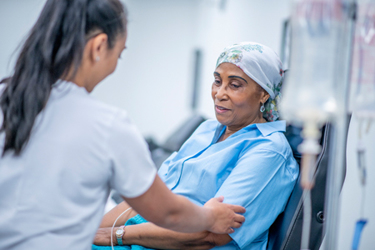Promises And Risks Of Allogeneic Therapies
By Shabnam Mehta, Sankalp Sethi, Curt Kugel, and Lexie Cornely

Cell therapy offers new promise to those suffering from life-threatening diseases, especially for the patients who benefit from the autologous cell therapies that have been approved. Yet only a fraction of the population that could benefit from these therapies are receiving them today.
There are significant logistical and financial challenges associated with the autologous CAR-T therapies currently on the market. Specifically, there is not enough investment in the infrastructure required for the collection, storage, shipping and handling of cell products. The long turnaround times (TAT) required to manufacture autologous therapies and uncertainties about manufacturing success add another layer of complexity. These therapies require referrals, as well as fully equipped facilities with expertly trained staff members to both administer them and manage the unique adverse events (AEs) that patients may experience.
To learn more, ZS reached out to two experts in autologous and allogeneic cell therapies, both of whom are primary investigators in autologous and allogeneic CAR-T trials. Dr. Joshua Sasine, MD, assistant professor of medicine and founder of the CAR-T program at Cedars-Sinai Health System, and Dr. Farrukh Awan, MD, associate professor at the University of Texas Southwestern Medical Center, shared their perspectives in an interview with ZS on the evolution of autologous and allogeneic cell therapies.
Get unlimited access to:
Enter your credentials below to log in. Not yet a member of Cell & Gene? Subscribe today.
